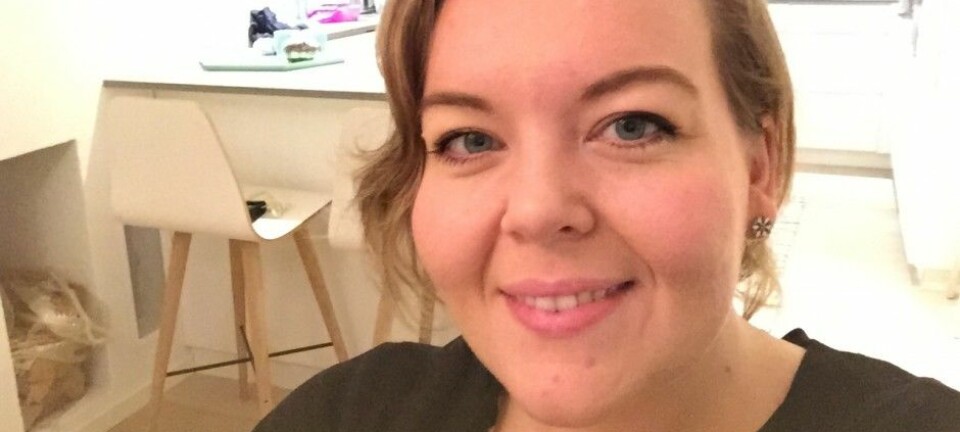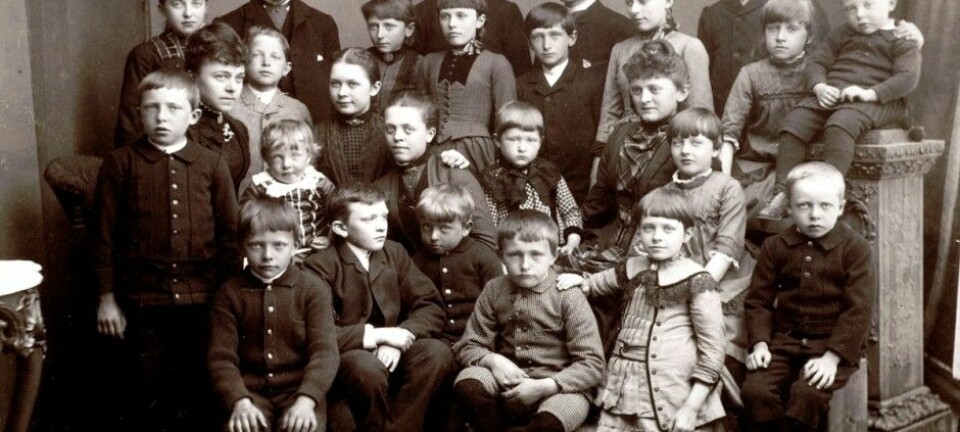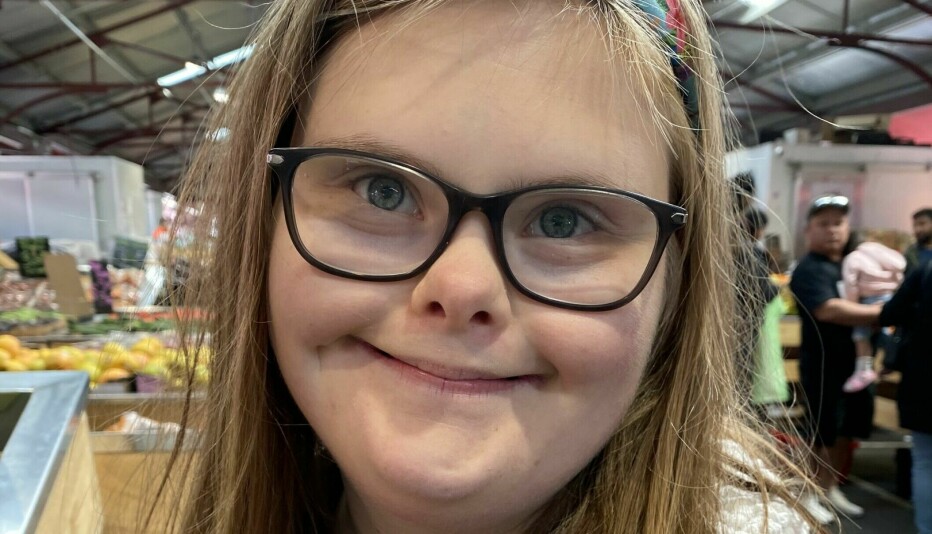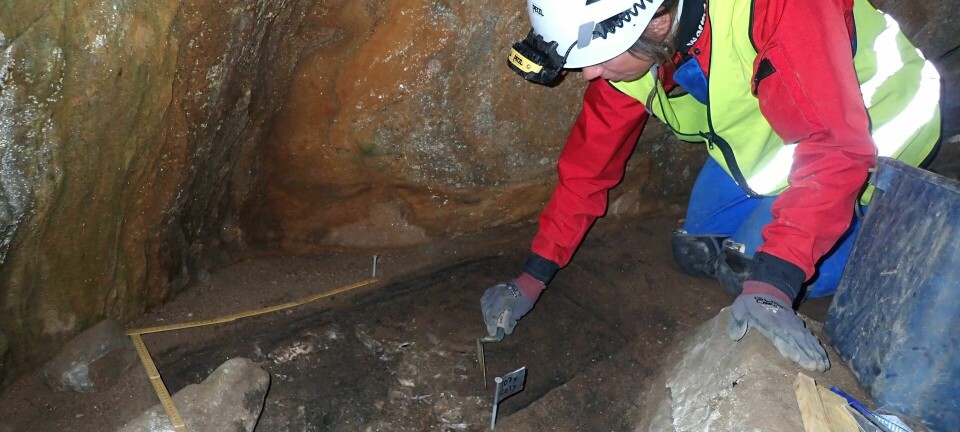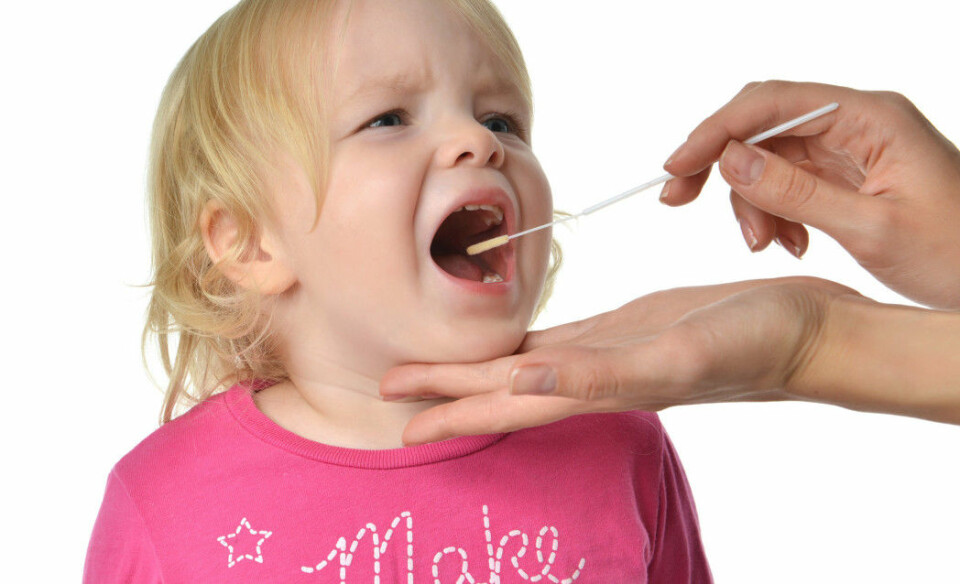
Should it be legal to give at-home genetic tests to your children?
You can test your childrens genes in the privacy of your own home - and receive information that can take your breath away. “We are shockingly ill-prepared for a consumer trend that we have only seen the beginning of,” says the director of the Norwegian Biotechnology Advisory Board.
Are you wondering if your boyfriend, with whom you are planning to have children, is at risk of a serious hereditary illness?
Or whether your offspring, whom you drive back and forth to training several times a week, will really be any good in athletics?
In fact, there aren’t many restrictions on what you can find out.
All you need is a little saliva.
You can test for most things
"You can test for almost everything with a genetic test," said the Norwegian Consumer Council leader, Inger Lise Blyverket, at the E-Health in Norway (EHiN) conference in mid-November. The conference focused on digitization in the health sector.
And we are more than happy to test ourselves. Sales of DNA tests for home use in Norway are on a sharp increase.
We are especially hung up on knowing where we come from. A whopping 1.2 million Norwegians have a family tree account with MyHeritage, the world's largest kinship testing company, according to Blyverket.
It’s consequently no coincidence that the company just had a user conference in Norway, she said.
Norway has been identified as a country where the market for gene testing is growing rapidly. And they probably won't stop at kinship tests, says Blyverket.
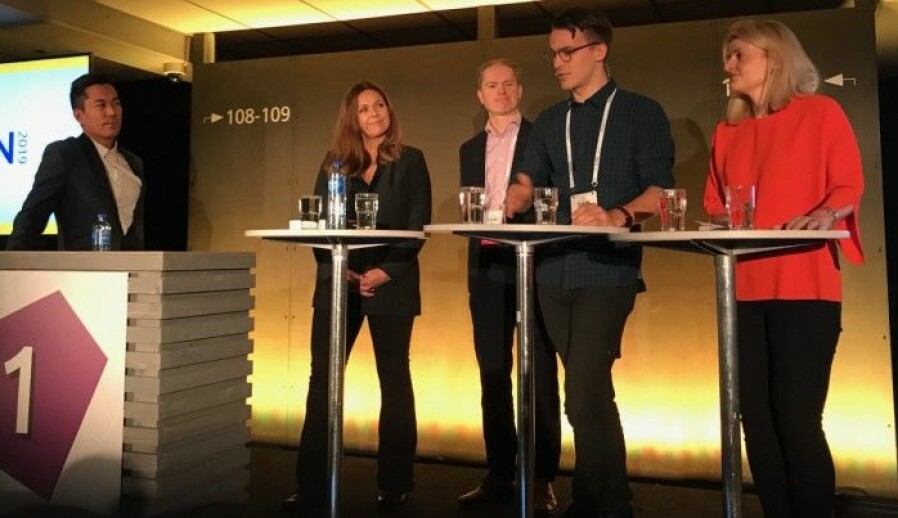
“We see there’s a trend for some companies that have provided kinship tests to now expand their repertoire to include health tests. Norway is now firmly in the customer database and therefore an easy marketing target,” she said.
There’s a lot of money to be made for the roughly 300 companies worldwide that currently offer gene testing, she said.
Sent saliva to other side of the globe
Håvard Kristoffersen Hansen, a journalist at VG, a national newspaper, is among the many who have taken a DNA test at home. He was at the conference and talked about his experiences.
Hansen said he had seen the commercials on social media that revolve around the question: Who are you? and became curious. He ordered two kinship tests. An envelope arrived in the mail from each company with two tubes, one with a swab for him to brush along the inside of his mouth and one for clean saliva.
The envelope also contained an agreement he had to sign. He tried to read it but understood nothing.
As he was working on his story about genetic testing for VG, he did some more homework and contacted legal and biotechnology experts. But they didn’t understand what was in the agreements from the companies either.
Do they sell information to third parties?
Hansen was particularly interested in knowing whether the companies sold information about his genes to others. So he contacted them directly.
MyHeritage agreed to be interviewed and strongly stated that they did not sell data to third parties. The response from the other company, Ancestry, was more vague. Hansen wrote about his findings in VG.
Researcher Anne Kjersti Befring completed her doctorate in law at the University of Oslo last year on genetic mapping.
She believes that if you take a genetic test at home and send it to a company to be tested, you lose control over your biological material.
Swedish researchers have studied these contracts. They found that what you sign is a general power of attorney that gives the commercial industry the full right to use your information and material, Befring says.
The information is used to build up huge databases that will eventually contain an enormous amount of information about us — and thus will be of great value. This gives companies a lot of power, she said.
Befring believes it is important for decision makers to begin talking about this now. There’s essentially no regulation of this aspect of the industry, not in Norway or anywhere else in the world, she said.
Data are shared with police in the United States
Genetic tests are an attack on our privacy and on our consumer rights, says Blyverket, the director of the Norwegian Consumer Council.
“The Terms of Use are so long and complicated that you aren’t expected to read everything,” she said. “And it's clear that the genetic data are sold to a third party.”
Once we have sent a genetic test to a company, we have no control over how and by whom it is used.
“We know that in some situations these data are also shared with the police and other authorities. This has happened in the United States,” she said.
While it may seem harmless in Norway to share information about our genes with others, we know very little about what kind of political regime we will live under in a few years, Blyverket said.
“There is no doubt that we are in the infancy of this trend for health testing. We want the authorities to investigate this much more thoroughly and look at the possibilities for national regulation and how to supervise the companies we have today,” she said.
We're poorly prepared
Ole Johan Borge, director of the Norwegian Biotechnology Advisory Board, believes we are shockingly ill-prepared for a consumer trend that we are only now seeing the beginning of.
“It’s a paradox that if you go to a hospital, genetic testing is extremely regulated. But you can take exactly the same tests at home — and even on your own children,” he says. “And you get information that can take your breath away.”
He believes it is naïve to think that these tests aren’t already having — and will continue to have — a great effect.
“In the future, we can’t ignore the fact that information about our genetic material will be a very important factor in choosing sports, our studies, professions and partners, and on and on and on,” he says.
Can the information from the tests be trusted?
VG’s Hansen took genealogy tests from two different companies. He got different answers from them.
How much can we really trust the information from these tests?
Borge believes some of the tests are 100 per cent certain and other tests are close to 100 per cent incorrect.
If you and your biological father and mother had taken a test to see if you were related, you could be absolutely sure that the answer you received was correct. But if you test yourself for the risk of disease, the results are more uncertain.
This is partly because these tests don’t provide a complete picture of your biology. Although you may have some genes that predispose you to a disease, you may have other genes that protect you from the same disease.
We currently don’t know how all our genes combined affect the human body. But every day, new pieces are added to this puzzle. And the tests will get better and better, he said.
What exactly does a doubled risk mean?
Blyverket believes that new companies will now emerge to help people interpret the results they get from genetic tests they take at home.
For example, if a test shows that you have a doubled risk of getting Alzheimer's, what does it really mean?
“If there is only a one-in-one-thousand risk of getting a disease, a doubled risk isn’t that interesting. But it can still create a great deal of anxiety if the person taking the test doesn’t understand what it means,” she said.
The authorities are not the only ones who are unprepared for this new world — consumers aren’t mentally prepared for the information they may get from these tests either.
“We may get information about the risk of diseases for which there is no treatment. Not everyone thinks about this when they put a stick in their mouth and send it off in an envelope in the mail,” says Blyverket.
———
Read the Norwegian version of this article at forskning.no








